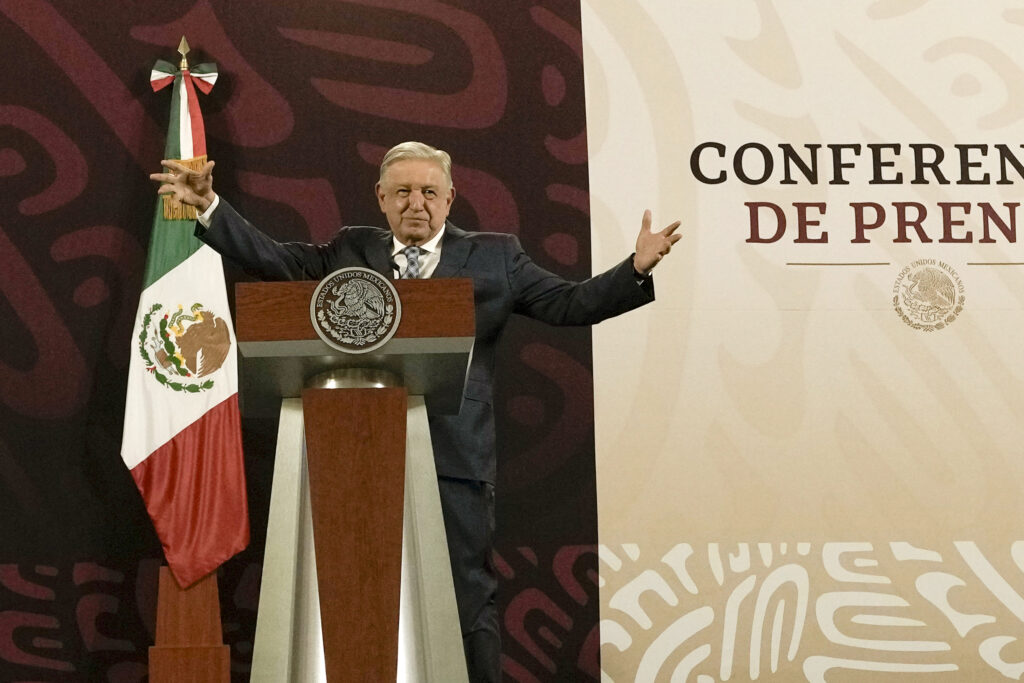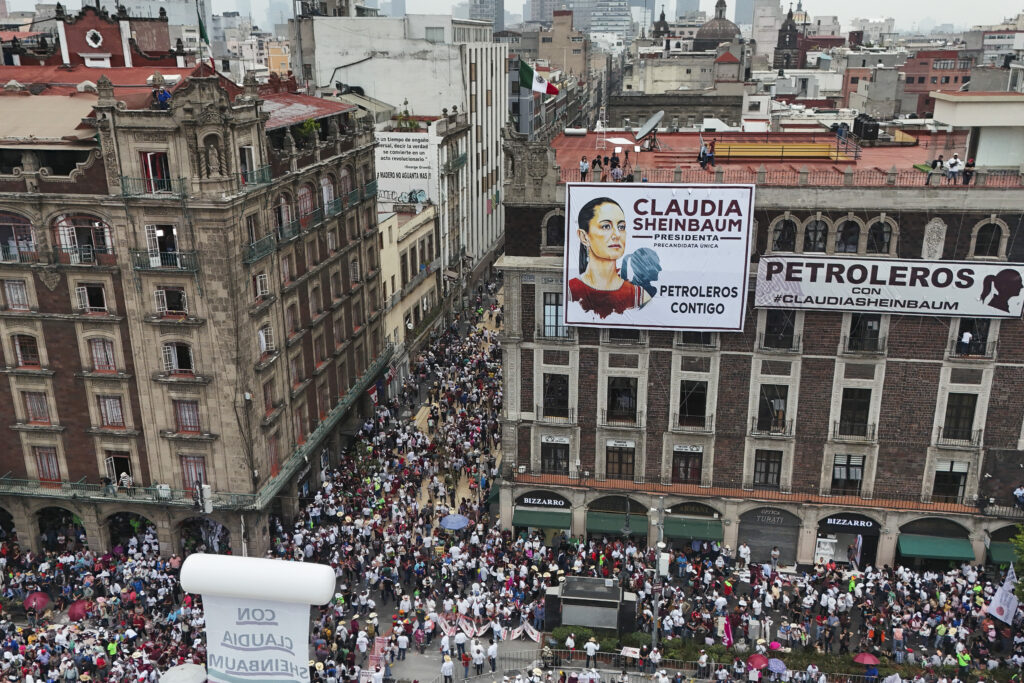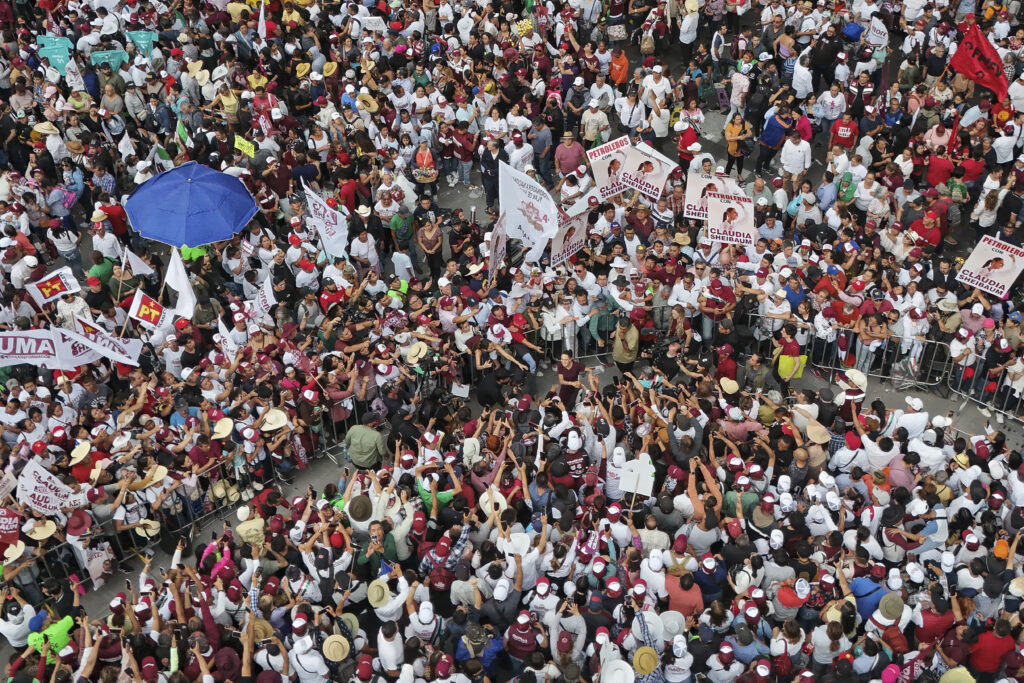
Against a backdrop of increasing violence, a historic number of voters are expected to cast their ballots in Mexico‘s Sunday elections.
Claudia Sheinbaum leads Xochitl Galvez as the favored candidate in the polls as the country is on course to elect Mexico’s first female president.
Sheinbaum represents the left-leaning Morena Party, and Galvez represents the opposition alliance, led by the conservative National Action Party. This election marks a significant shift in a society long defined by its “macho” culture.
Here are four things to know about the historic contest:
Mexico’s record-breaking election
This election stands out as the largest in the nation’s history, with more than 20,000 congressional and local positions available, as reported by the National Electoral Institute.
On June 2, nearly 100 million constituents, including a record-breaking number of first-time participants, are expected to cast their votes.
The winning candidate will succeed sitting President Andres Manuel Lopez Obrador and govern Mexico for the next six years.

Sunday’s elections will not just decide the country’s president but will mark tens of thousands of races from local to state government.
During the three-month campaign season, more than 20 candidates have been killed, and hundreds more are seeking state protection, particularly those running for state and local positions. This surge in violence is fueled by the high number of contested posts and the growing presence of criminal groups using the elections to assert dominance.
In addition to the country’s violence and economy, this election will also help define Lopez Obrador’s political legacy and Mexico’s long-standing relationship with the United States.
How does Mexico’s voting system work?
Parties choose their candidates before the start of campaigning for the presidential, congressional, and municipal elections. On June 2, millions of voters will participate in a single round of voting to select their new leaders.
The president is elected every six years through direct election, universal suffrage, and the principle of a relative or simple majority. The Mexican Constitution explicitly prohibits any form of executive office reelection.
Mexicans will also vote for 128 senators elected for a six-year term, 500 congressional representatives who serve for three years, and nearly 20,000 local government positions.
Senators may be elected for up to two consecutive terms and representatives for up to four terms. Nomination is only allowed from the same party or coalition members unless they resign or lose membership before halfway through their term. They cannot be under trial or have pending cases to qualify for reelection.
What legacy has Lopez Obrador left behind?
Elected in 2018, Lopez Obrador prioritized combating corruption and focused on previously marginalized demographics, such as the working class, rural voters, and the poor.
Even in his final months in office, Lopez Obrador still maintains high levels of approval. He has reduced poverty, increased the minimum wage, and expanded a popular pension program.
His opponents argue his actions targeting the judiciary, reducing funding to Mexico’s electoral agency, and broadening the military’s role in civilian affairs have undermined their democracy.
During these years, amid increasing opposition protests, Lopez Obrador has shown a low tolerance for criticism and oversight.

Just days before the elections, he committed to accepting the electoral results, even if his endorsed candidate, Sheinbaum, lost.
“These are different circumstances now. It’s a different Mexico; there’s no longer fraud. They used to steal elections from us. It’s not just about trust in the electoral authority; it’s trust in the people,” he said.
Previous elections were surrounded by accusations of vote-buying. In 2012, Lopez Obrador alleged that the opposing party handed out prepaid gift cards and grocery items to voters. The results were ratified despite the controversy, massive protests, and partial vote recounts.
Since then, confidence in the honesty of Mexico’s elections has risen gradually, reaching 44% last year compared to the average of 19% back in 2017, according to Gallup.
Despite popular support, the winner will have to face a number of challenges, including economic and security matters, as well as problems with migration and the country’s national industry because of limited energy and water resources.
Mexico has experienced high inflation rates, and its current budget deficit stands at approximately 6% of gross domestic product, marking levels unseen since the 1980s, according to CEIC data. Regarding security, homicide rates persist at alarmingly high levels, with corruption and organized crime spreading across the country.
Migration is also one of the most pressing problems right now, not only because of Mexico’s relationship with the U.S. but also within its territory. It has witnessed record numbers of immigrants applying for asylum.
Why the surge in violence during this campaign?
Lopez Obrador’s policy of “hugs, not bullets,” focusing on undoing the underlying societal causes of violence, appears to be ineffective against cartels and other criminal groups in Mexico.
In the months leading up to the election, activists claimed his administration attempted to lower the official count of Mexico’s forcibly disappeared people. Lopez Obrador has also been accused of avoiding direct confrontation with criminal organizations before.
Violence has reached alarming levels in states where criminal groups are fighting for territory, such as Chiapas and Guerrero in the south and Michoacan in central Mexico. More than 150 people have been killed this year as victims of political violence, according to Data Civica.
CLICK HERE TO READ MORE FROM THE WASHINGTON EXAMINER
Sheinbaum has supported Lopez Obrador’s “hugs, not bullets” security approach, prioritizing social programs over law enforcement. While publicly endorsing increased military involvement in domestic security, she also invested in enhancing and professionalizing the city’s civilian police force during her tenure as mayor.
Galvez is expected to emphasize law enforcement alongside social programs to combat escalating violence, with a focus on bolstering civilian policing for basic safety and upholding the rule of law.







